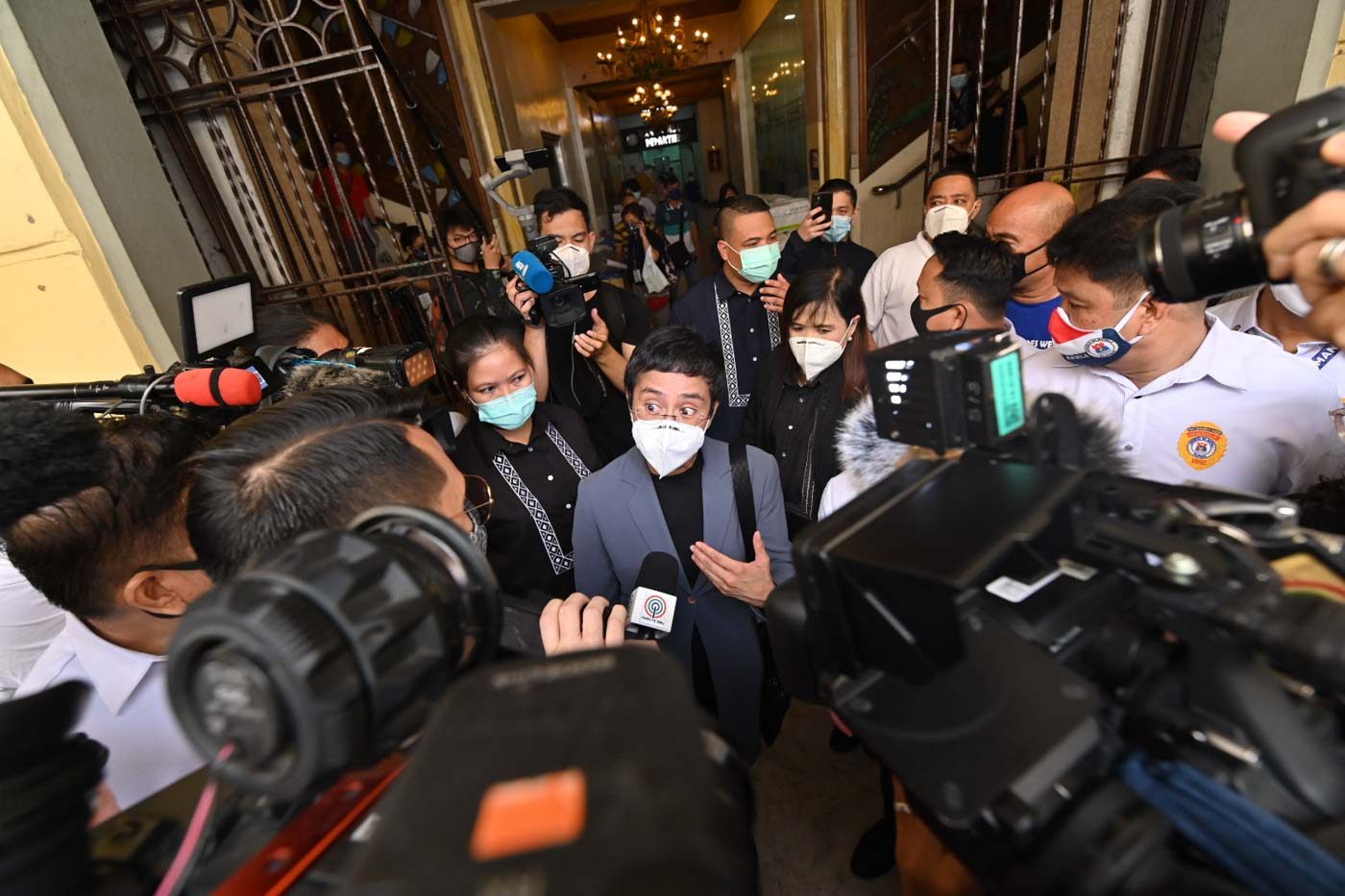SUMMARY
This is AI generated summarization, which may have errors. For context, always refer to the full article.

MANILA, Philippines – United Nations special rapporteurs slammed the conviction of Rappler chief CEO and Executive Editor Maria Ressa and former Rappler researcher-writer Reynaldo Santos over cyber liber charges in a trial widely seen as a test case for press freedom in the Philippines.
UN Special Rapporteur on freedom of opinion and expression David Kaye and UN Special Rapporteur on extrajudicial executions called the guilty verdict handed down on Monday morning, June 15, a “tragedy for Philippine democracy.”
Rappler Inc, indicted in the complaint, was declared to have no liability.
“This is a tragedy for Philippines democracy and media and for one of the great voices for freedom today, Maria Ressa, a friend and inspiration to so many of us,” Kaye said. “This injustice cannot stand.”
“What a complete travesty of justice and an outrage,” he added.
this is a tragedy for #Philippines democracy and media and for one of the great voices for freedom today, @mariaressa, a friend and inspiration to so many of us. this injustice cannot stand. https://t.co/y3Q4zWXnYk
— David Kaye (@davidakaye) June 15, 2020
“A travesty of justice; a tragedy for the Philippines; but not the end of the fight and solidarity with and for Maria Ressa and press freedom,” said Callamard, who is also the Director of Columbia University’s Global Freedom of Expression project.
A travesty of justice; a tragedy for the Philippines; but not the end of the fight and solidarity with and for @mariaressa and #pressfreedom. Dearest friend, I am appalled, angry, and so much in awe with your courage. https://t.co/bJoYUpI0rp
— Agnes Callamard (@AgnesCallamard) June 15, 2020
What happened? The Manila Regional Trial Court Branch 46 sentenced Ressa and Santos to 6 months and 1 day to up to 6 years in jail over charges filed by businessman Wilfredo Keng in a case that tested the 8-year-old Philippine cybercrime Law.
Ressa and Santos won’t have to go to jail as they were granted bail, pending appeals that could go to higher courts, all the way to the Supreme Court.
The case stemmed from an article written in 2012 on the late former chief justice Renato Corona’s links to businessmen, including Keng. The cybercrime law used against Ressa and Santos was enacted months after the article was published while Keng filed the complaint in 2017 or 5 years later, beyond the more typical one-year prescription period for libel under the Revised Penal Code.
Despite this, the Philippine Department of Justice found an obscure law – Republic Act 3326 – to extend libel’s prescription period from one year to 12 years.
The cyber libel case is only one in a string of cases against Rappler and Ressa. (LIST: Cases vs Maria Ressa, Rappler directors, staff since 2018) – Rappler.com
Add a comment
How does this make you feel?
There are no comments yet. Add your comment to start the conversation.